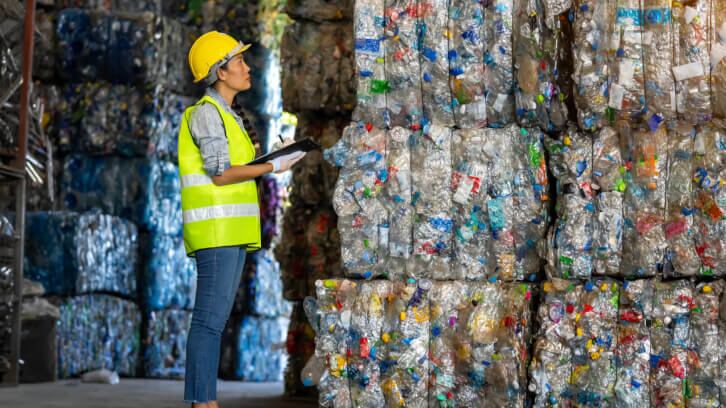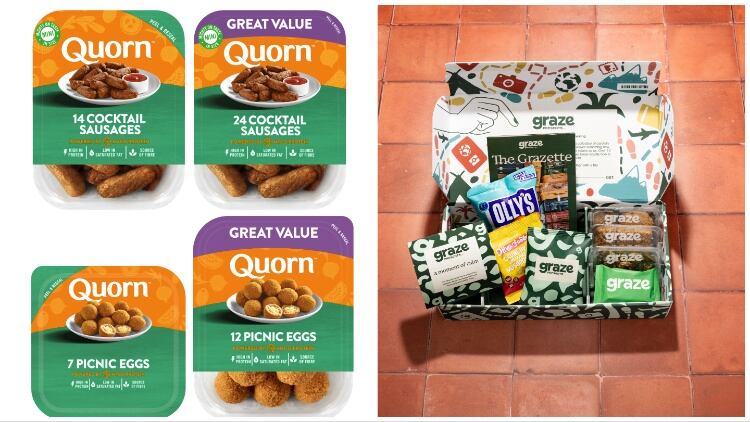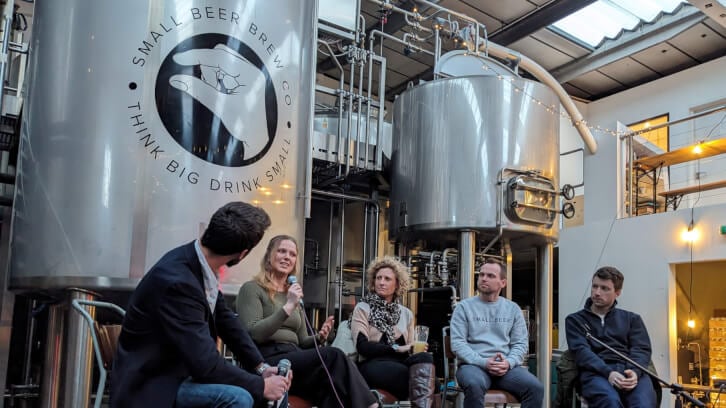The Plastic Packaging Tax saw a 3.3% increase, shifting from £210.82 per tonne in 2023 to £217.85 as of 1 April 2024.
The tax was introduced in 2022 and applies to plastic packaging that contains less than 30% recycled content. It affects those who have manufactured or imported 10 or more tonnes.
Currently, in the UK 42% of all plastic placed on the market is used in packaging. In 2022, a total of 2,219kt found its way into the UK, with grocery and hospitality accounting for 1,015kt and 193kt respectively.
Following on from the results of its survey conducted by WRAP, which identified that current policy is ‘missing the mark’, Veolia believes the tax needs to be increased further this year.
As stipulated in its Resource the Future report, it recommends an increase of 35% recycled content and £275 per tonne, and proposes escalating this to 50% and £500 per tonne by 2030.
Veolia believes this will stimulate demand for recycled content from brands and producers already under pressure from consumers to be more sustainable. A survey from YouGov in February 2024, found that as many as 82% of UK adults want to see more recycled content in the packaging they buy.
To achieve the recommendations Veolia sets out, the UK would need to invest £1.1bn into building 10 new plastic sorting and 30 new plastic reprocessing facilities. It estimates that this would create 2,500 new jobs and reduce annual carbon emissions by 1.8m tonnes of CO2 equivalent.
The business also believes a tax increase would prevent the UK from falling behind EU legislation, which could possibly hinder trade between the two markets. In comparison, the EU is targeting mandatory recycled content, rather than incentives, reaching up to 65% by 2040.
“The recycled plastic industry cannot be ignored if we are serious about building a green economy,” stated Gavin Graveson, Veolia’s senior executive vice president for Northern Europe.
He described the Plastic Packaging Tax as a ‘crucial lever to stimulate growth in the sector’ but one which requires a rethink.
“It needs recalibrating so we create a market where it is cheaper to be sustainable and more expensive to pollute by using virgin polymers.
“We need to bring thousands of tonnes worth of recycling capacity online – and fast. But this can be a great opportunity for the Government to unlock private investment, new jobs and carbon savings. Backing green policy isn’t a zero sum game.”
Meanwhile, Veolia isn't the only one issuing a warning, as trade body Logistics UK cautions food and drink to be less than a month away from a complete breakdown. Read why here.





